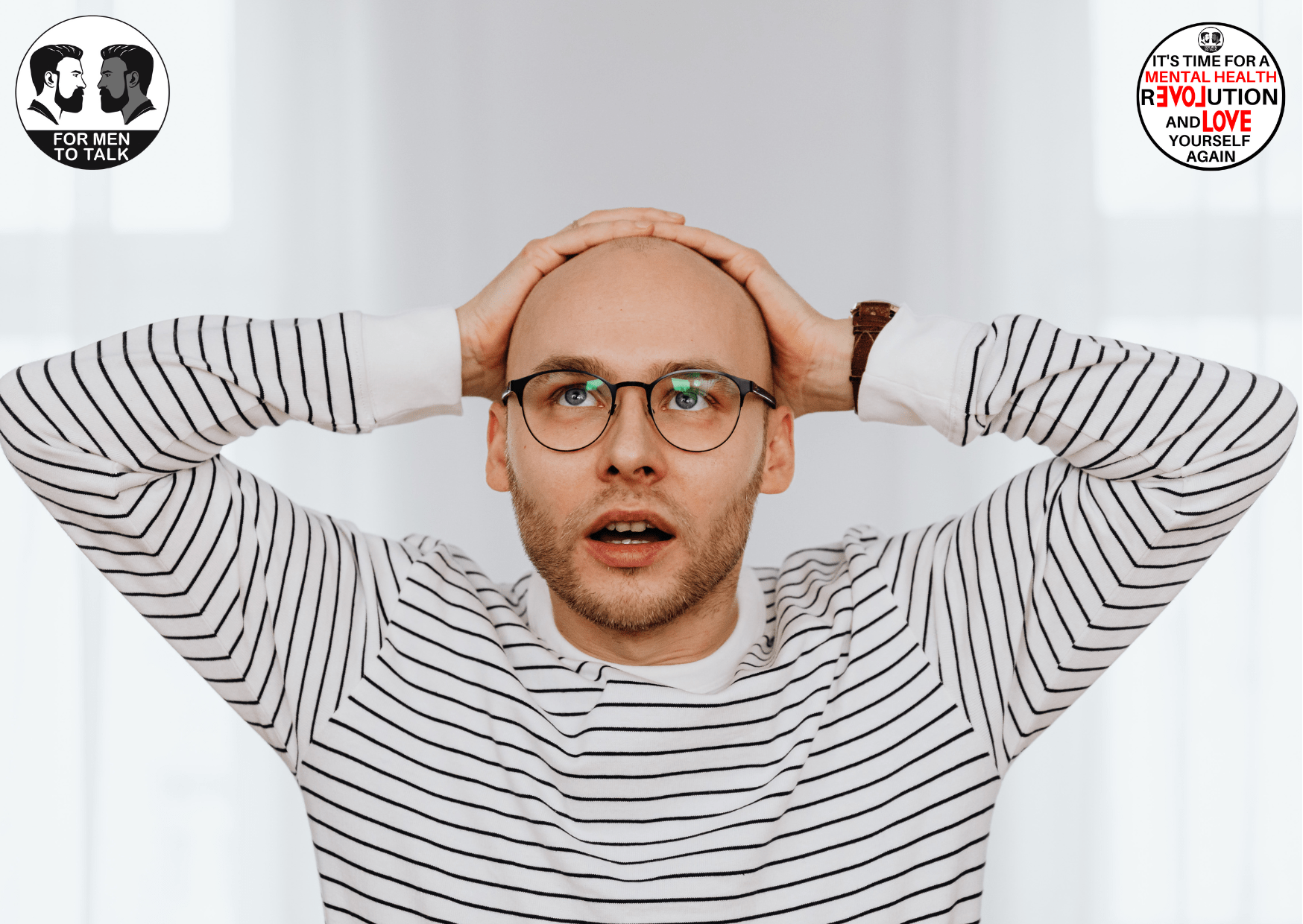How male pattern baldness can lead into depression

Male pattern baldness, also known as androgenetic alopecia, is a common condition affecting millions of men worldwide. As hair gradually thins and recedes, the psychological toll of this process can extend far beyond the physical aspect. While it may seem like a mere cosmetic concern, the emotional and social implications of male pattern baldness can be profound, often leading to depression. In this blog, we will explore the relationship between hair loss and depression, shedding light on the potential mechanisms behind this connection
Self-Esteem and Body Image:
For many men, hair plays a significant role in their self-perception and overall body image. A thick and healthy head of hair is often associated with attractiveness, youthfulness, and virility. As hair begins to thin and recede, individuals may experience a loss of confidence and self-esteem, leading to feelings of inadequacy and unattractiveness. The constant worry about their appearance and the fear of being judged by others can trigger emotional distress and contribute to the development of depression.
Social Anxiety and Isolation:
Male pattern baldness can be a source of embarrassment and shame for some individuals. They may feel anxious and self-conscious in social situations, fearing that others will notice their hair loss and pass judgment. This social anxiety can lead to avoidance of social gatherings and events, causing a gradual withdrawal from their social circles. Over time, this isolation can foster feelings of loneliness and exacerbate depressive tendencies.
Loss of Identity and Aging:
Hair loss can be a confronting reminder of aging, and for some men, it symbolises the loss of their youthful identity. This transition can be particularly challenging, as they may struggle to accept the changes in their appearance. Feelings of nostalgia for their younger, more vibrant selves can amplify feelings of sadness and hopelessness. Coping with these emotions can be overwhelming, potentially leading to depression.
Perceived Judgment and Stigmatisation:
Society’s emphasis on youthfulness and physical attractiveness can fuel the stigmatisation of hair loss. Men experiencing male pattern baldness might perceive judgment and discrimination from others, even if it is unintentional. Negative stereotypes associated with baldness can further contribute to feelings of unworthiness and exacerbate depressive symptoms.
Neurobiological Factors:
Apart from the emotional and social aspects, there may be underlying neurobiological factors linking male pattern baldness and depression. Some studies suggest a connection between certain genetic factors related to hair loss and the risk of developing depression. Additionally, hormonal imbalances, such as changes in testosterone levels, have been proposed as potential contributors to both conditions.
Conclusion:
Male pattern baldness can have far-reaching consequences beyond physical appearance, significantly impacting a person’s mental health and well-being. The emotional toll, arising from a combination of self-esteem issues, social anxiety, loss of identity, and perceived judgment, can pave the way for depression. It is crucial to recognise the potential psychological impact of hair loss and provide support to those experiencing these challenges. Open conversations, seeking professional help, and encouraging self-acceptance can aid individuals in navigating their hair loss journey and maintaining their mental health. Remember, true beauty lies not just in external appearance but in embracing one’s unique qualities and inner strength.